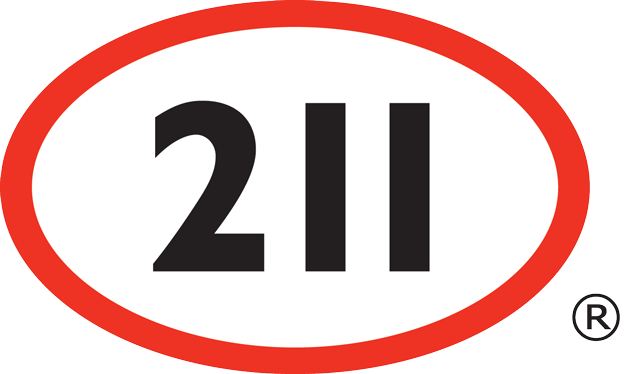The 211 Website Is Getting a Makeover Thanks to a Generous Donation!


Find Community and Social Resources
Find services by topic
Many housing services can help people in situations of homelessness or in difficulty. Whether it is emergency shelter, temporary housing or supervised appartements, the community sector of Greater Montréal can provide varied assistance to the homeless. Although primarily for shelter, these places offer more than just a roof and a bed. They can also provide assorted services such as food aid, material aid, psychosocial counseling, health care … resources for homelessness are committed to providing their clients with help that is best suited to their situations.
If you need help with your search, do not hesitate to contact us at 211!
Emergency shelters provide short-term shelter, from one to a few nights.
In addition to heated indoor facilities in which to sleep, these shelters provide a range of services that vary according to establishments: showers, laundry, meals, internet access, as well as help, support, and accompaniment services.
In fact, organizations such as l'Abri de la Rive-Sud also provide postal services. This enables clients to get a P.O. Box, meaning a fixed address, which can improve certain administrative steps towards reinsertion.
Some shelters are open to all, whereas others target specific clientele: women victims of domestic violence, youth, families, etc.
|
With or without pets Many shelters usually do not welcome dogs, cats, or other pets on their premises. However, more places are starting to, aware that homeless people will not leave their pet and will instead choose to sleep outdoors. You can consult our list of shelters that accept pets or contact us at 211. |
The terms of access vary from one shelter to another. For some, one just needs to show up when they open and it is first come, first served, within the limits of availability. Others require that the person registers, either online or over the telephone, during the day for that same evening. It is always better to check the shelter's website or phone before going.
Some organizations can provide shelter for a few weeks to a few months, even for one to two years. These types of shelters offer services that help clients with social reinsertion. They can include help with job and/or housing search, mental health care, addiction counseling, etc.
These places are neither emergency shelters nor long-term housing. Their vocation is to enable people in a homeless situation to have the necessary stability and help needed to concentrate on their life plan to reintegrate society at their own pace.
In general, these services are offered at a low cost, but with certain conditions such as actively participating in community life or being committed to taking the necessary steps to look for a job, for housing or others.
Again, some of these organizations are open to everyone and some target specific clientele. For example, many are specialized in helping adolescents or young adults. Thus, some services can be adapted to the public.
|
The Centre Le Diapason, a valuable resource for youth In Mascouche, the Centre Le Diapason welcomes youth 14 to 18 experiencing certain difficulties. «It could be a problem with addiction, anxiety, anger management» explains Mélina, Counselor at the Centre. Some come with their parents' consent, for example when parent/child cohabitation has become too difficult. Others come for emergency shelter after being kicked out of the house. «Each young person is assigned a counselor who can help them work on their personal problems. » adds Mélina. «Those who are still in school spend their day there, come back, do their homework, participate in group activities. There are rules to be respected. » Those looking for a job, can get help from their counselor with writing a CV, preparing for interviews, etc. The suggested contribution to this center is 14$ per day. «Some parents give more, some less, some nothing at all. It depends on everyone's means. » In addition to its shelter that offers a stay of 30 to 60 days, the Centre Le Diapason also disposes of supervised apartments for young adults 18 to 25. There for three years, they have full autonomy while continuing to have their own counselor and participating in the Centre's activities. All these services are covered in the rent which comes out to 25% of their monthly income. |
The terms of admission for transitional housing varies from one establishment to another. However please note that many organizations offer both emergency shelter and transitional housing. In such cases, people that have already frequented their shelter may have priority access to their transitional housing.
Supervised apartments are housing that is either long-term or without a time limit. Clients of this type of housing live there with an even more autonomy while continuing to have access to psychosocial counseling to help them get settled in their new lives. Rent for these apartments varies from one organization to another. In some cases, it could be a percentage of the person's monthly income like it is for Centre Le Diapason.
These types of apartments are offered by organizations that also have emergency and/or transitional shelters. Once again, people that have frequented one of these services will have priority access to supervised apartments.
Day or evening centers for the homeless are places where people could stay a while to warm up during winter or to receive various free services throughout the year. Services can include recreational activities, counseling, facilities to rest and attend to personal needs or any other support services.
Other than housing resources, people in situations of homelessness can benefit from many other services provided by community organizations: access to health care, advocacy, food assistance and soup kitchens, etc.
Click here to know the resources for homelessness available in our database. You can also reach our team by telephone at 211. Our counselors will then be able to determine your needs and find the resources that are best suited to your situation or that of your client.
Ce contenu a été traduit grâce au soutien du Secrétariat aux relations avec les Québécois d’expression anglaise



